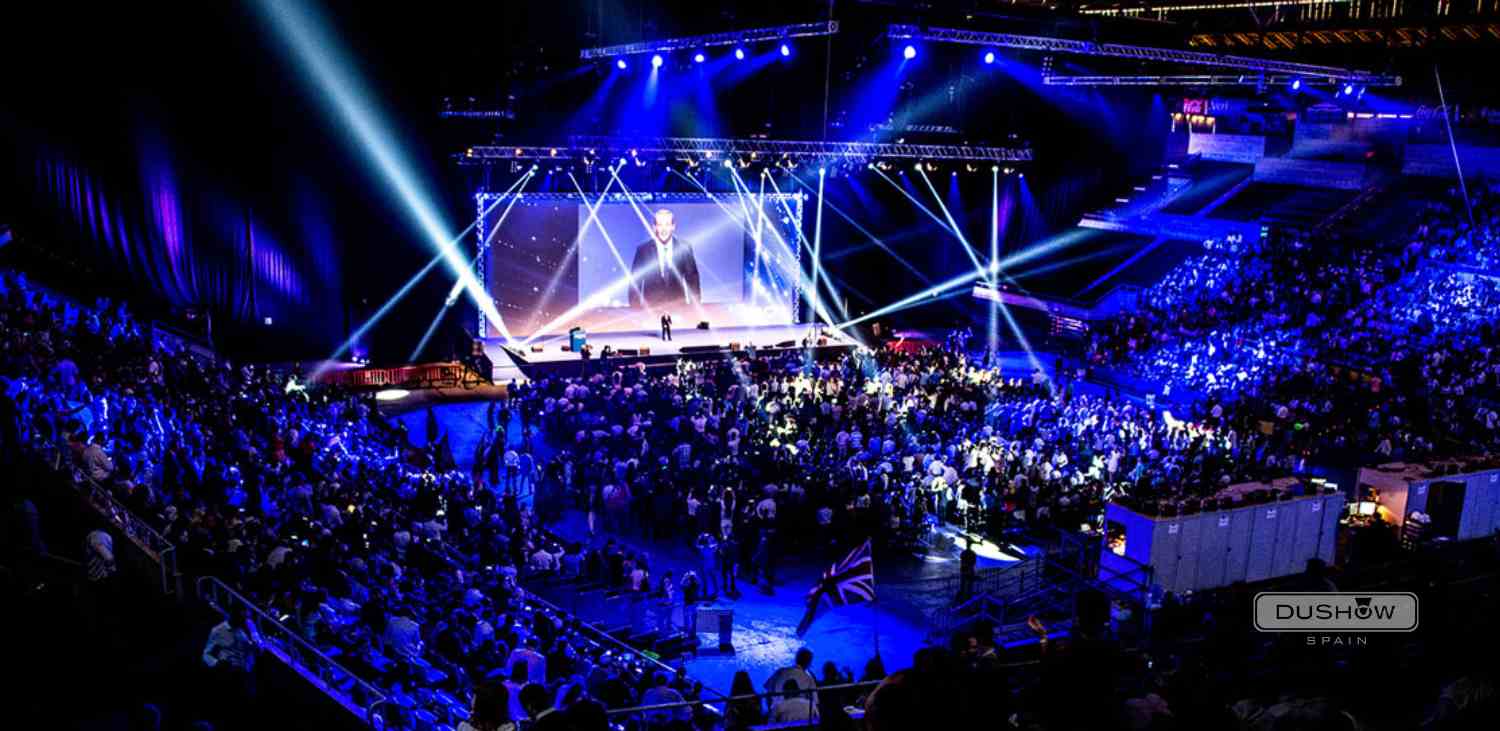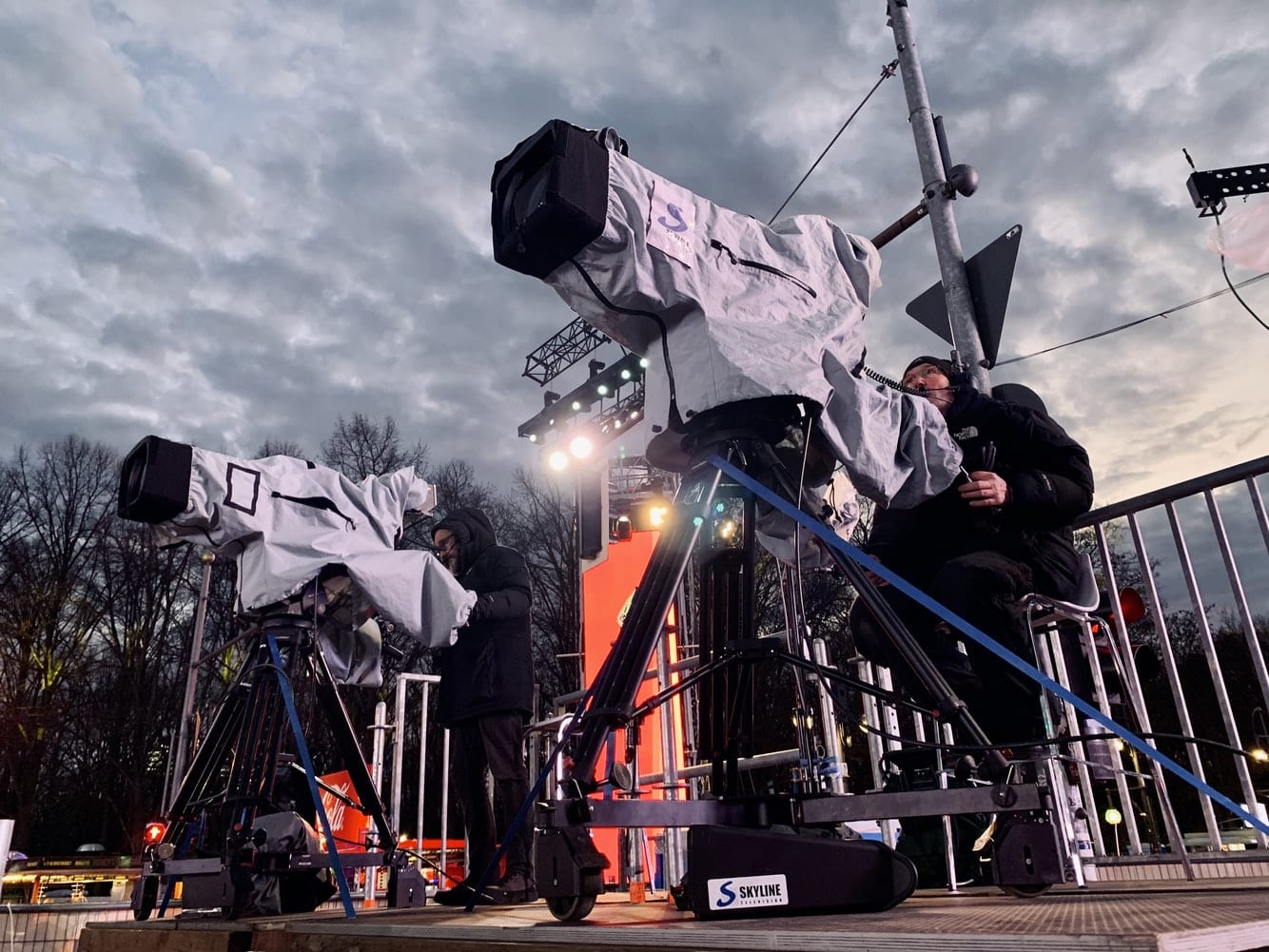Just How Event Production Works: A Comprehensive Take A Look At the Refine
Event production is a facility and structured procedure that calls for mindful planning and implementation. It starts with establishing clear goals and recognizing the target market. Each step, from budgeting to venue choice, plays an essential function in ensuring success. As the process unfolds, various aspects need to straighten effortlessly. The nuances of this detailed procedure frequently go undetected. What are the key stages that add to a remarkable event?

The Preliminary Drawing Board
When starting on event production, careful planning is important to guarantee an effective result. The initial planning phase functions as the foundation for all subsequent initiatives. Throughout this phase, event manufacturers must define the event's function and objectives plainly. Recognizing the target audience helps customize the experience and messaging, ensuring importance and engagement.Producers have to also think about the event layout, whether it be in-person, online, or crossbreed, as this will influence different logistical components. Choosing a suitable day and place is crucial, as it influences ease of access and availability.Furthermore, setting up a dependable team is fundamental for separating responsibilities and enhancing interaction. Establishing a timeline with turning points assurances all jobs are finished on time. This stage entails comprehensive study, including recognizing potential challenges and creating methods to mitigate risks. Ultimately, a well-structured initial preparation stage establishes the tone for an effective event production journey.

Budgeting and Resource Appropriation
In event production, efficient budgeting and source appropriation are vital for success - event production charlotte. Developing monetary parameters sets the foundation for all succeeding decisions, while source circulation methods ensure that every component of the event is appropriately sustained. Together, these components aid keep control over expenses and maximize making use of offered resources
Developing Financial Parameters
Developing financial parameters is important to the success of any kind of event production, as it establishes the foundation for reliable budgeting and resource allowance. This process begins with defining the general spending plan, which includes all elements of the event, including place prices, event catering, and advertising. By recognizing readily available funds, event coordinators can focus on expenditures and allocate sources as necessary. In addition, it is essential to carry out detailed market study to prepare for potential costs and recognize financing sources, such as sponsorships or ticket sales. Establishing clear monetary specifications additionally help in risk management, permitting coordinators to set apart backup funds for unanticipated expenditures. Inevitably, a well-defined spending plan serves as a roadmap, assisting the event production group towards accomplishing their objectives while maintaining financial control.
Resource Distribution Methods
Effective resource distribution strategies are crucial for optimizing the effect of an occasion while adhering to budget plan restraints. Effective event production calls for a precise technique to budgeting and source allowance. Coordinators must prioritize essential elements such as venue, event catering, and technology, guaranteeing that funds are designated to areas that boost guest experience. A comprehensive budget plan should detail expected expenditures and identify locations for potential cost financial savings, such as bargaining with suppliers or exploring sponsorship possibilities. Furthermore, tracking expenditures throughout the preparation process helps prevent overspending. By using calculated resource circulation, event manufacturers can deliver a remarkable experience while preserving monetary duty, ultimately contributing to the total success of the event.
Location Selection and Logistics
Picking the best place is vital to the success of any kind of event, as it sets the phase for the overall experience. Location option involves reviewing various aspects, consisting of capacity, access, and location. Coordinators have to think about the target market and the nature of the event, ensuring the location lines up with the event's goals.Logistics play a substantial role in this process, entailing arrangements for seats, audiovisual tools, and providing solutions. An appropriate place should help with smooth circulation for participants and staff, improving engagement.Additionally, assessing possible venues for facilities like auto parking, toilets, and emergency exits is necessary for safety and security and ease. The timeline for securing the venue is additionally critical, as popular locations may reserve rapidly - event production charlotte. Complete preparation and prompt execution can eventually contribute to a smooth event experience, making place selection and logistics fundamental components of successful event production.
Imaginative Principle Growth
While the location sets the physical stage, innovative concept development forms the event's identification and narrative. This procedure starts with recognizing the event's function and target market, allowing event producers to create an engaging theme that reverberates with guests. Brainstorming sessions frequently consist of varied point of views, fostering innovative concepts that line up with the event's goals.Once a motif is developed, aesthetic components such as shade palettes, signage, and decor are developed to enhance the general atmosphere. Storytelling strategies may likewise be integrated to produce an engaging trip for participants, guaranteeing a remarkable experience. Furthermore, considerations regarding amusement, tasks, and interactive elements are straightened with the selected concept, enhancing the theme throughout the event.Ultimately, reliable innovative idea growth warranties that every element of the event works cohesively, leaving a long-term perception on participants and satisfying the event's purposes. This foundational job lays the groundwork for subsequent preparation and execution phases.
Teaming up With Vendors and Distributors
Successful event production rests on reliable collaboration with vendors and vendors. Choosing reliable partners, discussing agreements efficiently, and making you could look here certain timely shipments are important steps in this process. Each of these aspects adds significantly to the total success and smooth execution of an occasion.
Selecting Reliable Allies
How More Info can event coordinators guarantee a smooth production experience? Selecting reputable companions is essential in attaining this objective. Event coordinators should carry out detailed study to determine suppliers and suppliers with a proven track document of excellence. This includes checking recommendations, examining profiles, and reviewing consumer responses. Organizers should prioritize companions that show professionalism and reliability, prompt interaction, and a determination to work together. Building strong relationships fosters trust and makes it possible for quick analytical during the event. Additionally, it is advantageous to select regional vendors who understand the venue and regional logistics. Inevitably, an effective event rests on the harmony between organizers and their partners, guaranteeing that every facet of production runs efficiently and effectively.
Working Out Agreements Successfully
Efficient negotiation of agreements is a crucial step in the collaboration in between event coordinators and their vendors and vendors. This procedure includes clear communication of assumptions, deliverables, and timelines. Coordinators must carry out comprehensive research on market prices and market standards to establish a standard for settlements. It is important to develop a collaborative ambience, motivating open dialogue regarding terms, pricing, and prospective contingencies. Organizers ought to additionally prioritize recognizing the vendor's capacities and limitations to straighten their needs successfully. Flexibility can cause mutually helpful agreements, promoting long-term connections. Crafting distinct contracts that include details performance metrics can assist assure responsibility, inevitably leading to successful event implementation and complete satisfaction for all events involved.
Making Sure Prompt Deliveries
Timely distributions are essential for the smooth execution of any type of event, calling for persistent cooperation between coordinators and their suppliers and distributors. Effective communication is crucial, as it aids develop clear expectations concerning shipment timetables, amounts, and details requirements. Planners typically develop thorough timelines to outline crucial turning points, making certain all events continue to be aligned throughout the process. Regular check-ins with vendors can help determine possible delays early, permitting proactive services. In addition, constructing solid partnerships with trusted suppliers fosters trust and accountability, which can result in better service and prioritization. By focusing on these joint initiatives, coordinators can lessen interruptions, consequently improving the general effectiveness of event production and guaranteeing that all required materials and solutions get here as intended.
Advertising and Promotion Strategies
While organizing an event, the success of advertising and promo methods can significantly affect participation and involvement. Efficient techniques often consist of a mix of electronic marketing, traditional marketing, and grassroots outreach. Utilizing social networks systems enables real-time interaction and targeted advertising and marketing, reaching details demographics successfully. Email advertising and marketing campaigns can better engage possible attendees with individualized content and reminders.Collaborations with influencers or market leaders can additionally enhance integrity and widen reach. Producing interesting web content, such as videos or blog sites, aids to generate buzz and endure passion leading up to the event. Additionally, leveraging early-bird discount rates and unique perks can incentivize ticket purchases.Promoting with standard networks, click here to read such as posters or local media, remains appropriate, specifically in community-focused occasions. A comprehensive technique that incorporates numerous strategies guarantees maximum exposure and involvement, inevitably adding to the event's success and the creation of a memorable experience for guests.
On-Site Execution and Administration
On-site implementation and administration are crucial parts that determine the overall success of an event. Effective coordination during the event guarantees that all elements align with the planned agenda. Event managers oversee logistics, including supplier control, tools arrangement, and visitor solutions. Checking timelines and addressing any kind of unanticipated concerns are basic for keeping a seamless experience.The personnel plays a considerable role, as trained personnel are accountable for numerous jobs such as registration, information circulation, and technological support. Communication amongst employee is important; it fosters a joint setting and makes it possible for fast resolution of challenges.Additionally, security protocols must be abided by, protecting the well-being of all participants. Post-event examinations are also component of on-site administration, offering insights for future renovations. By concentrating on these aspects, event manufacturers can create remarkable experiences that satisfy or exceed participant expectations while achieving the event's goals.
Frequently Asked Inquiries
How Do I Pick the Right Event Style?
Choosing the ideal event theme includes considering the target market, event purpose, and place. Investigating existing patterns and collecting input from stakeholders can also motivate creative concepts that resonate and produce a remarkable experience.

What Are Usual Blunders in Event Production?
Typical errors in event production typically include inadequate preparation, inadequate interaction among staff member, budget plan mismanagement, ignoring to think about the audience's needs, and failing to perform a detailed post-event examination for future enhancements.
Just How Can I Gauge Event Success?
To gauge event success, one can examine attendee complete satisfaction, interaction levels, budget plan adherence, and post-event comments. Key efficiency signs, such as ticket sales and social media communications, likewise provide beneficial insights right into general performance.
What Should I Do if It Rains on the Event Day?
In case of rain on the day, the coordinator must implement backup strategies, such as protecting tents or moving tasks inside your home. Interaction with guests concerning changes is important to ensure a smooth experience regardless of weather condition obstacles.
How Can I Make Sure Attendee Interaction Throughout the Event?

Comments on “Event production charlotte’s approach to seamless team communication”